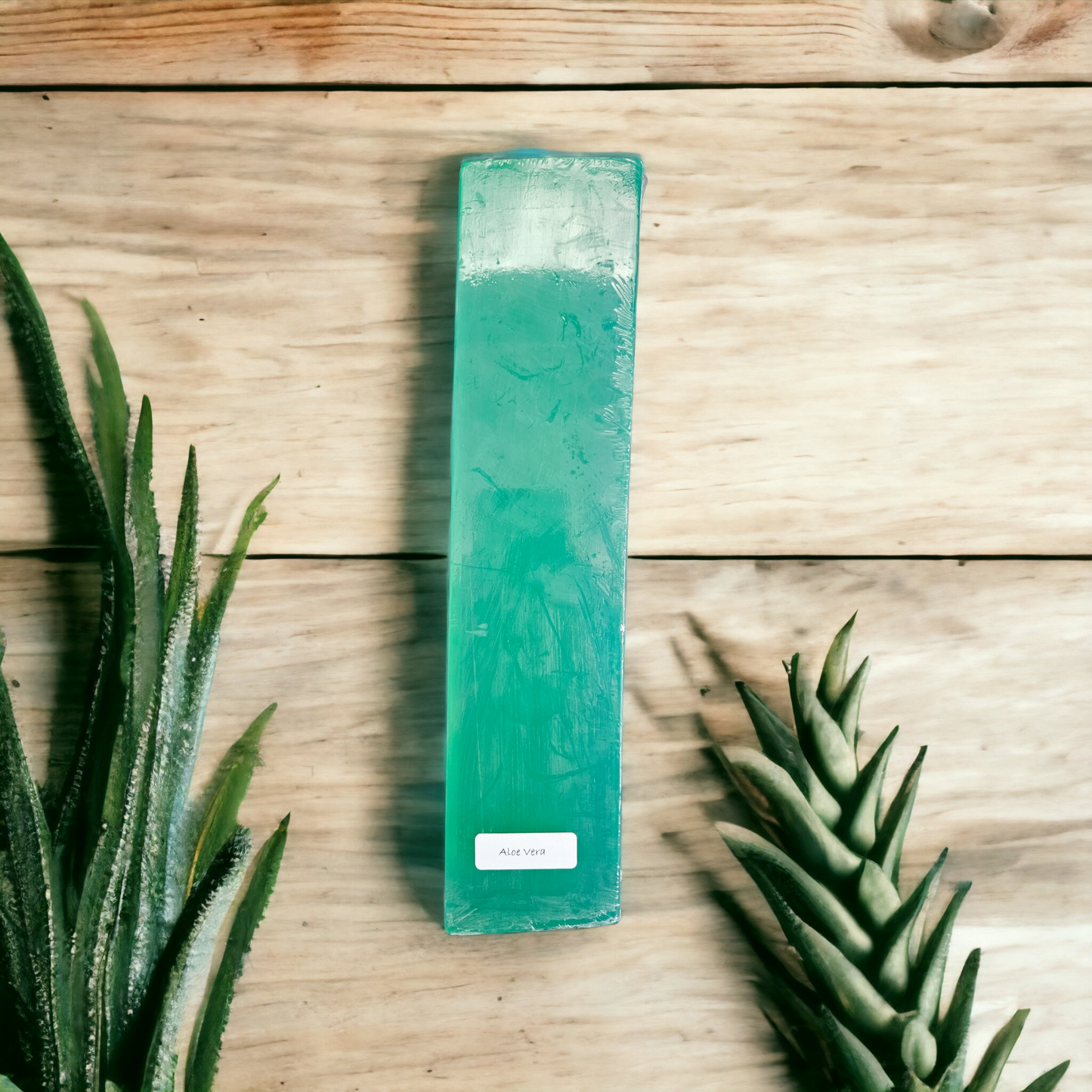Romaqo
Aloe Vera Glycerine Melt and Pour Soap Base 1kg
Aloe Vera Glycerine Melt and Pour Soap Base 1kg
Couldn't load pickup availability
This soap is hand-made. Only plant Glycerine is used in manufacturing. Preservative Free.
Clear, sea green.
Ingredients:
STEARIC ACID
PROPYLENE GLYCOL
SODIUM XYLENE SULPHONATE
SODIUM LAURETH SULPHATE
PALM KERNEL OIL
CANE SUGAR
PLANT BASED GLYCERINE
AQUA
SODIUM HYDROXIDE
ALOE VERA
Properties:
Plant based Glycerine soap
Ph-Balanced
Hypo-Allergenic
Bio-degradable
Strong lathering properties
Strong Moisturising properties
Contains no animal products
Contains no harmful chemicals
Contains no preservatives
These soaps are so simple to cut and mould to your own shapes, making it perfect for diy soap makers. The benefits make this soap a must in every household.
Benefits:
Pure glycerine soap is all-natural, unlike many over-the-counter soaps. Alcohol, perfumes, and other chemical-based components that could irritate your skin are not present.
Because of this, glycerine soap is a wonderful alternative for those with sensitive skin.
Whether from hot water or harsh treatments, bathing frequently strips your skin's natural oils. Glycerine can aid in retaining the moisture in your skin and preventing over-drying.
This could be especially helpful if you have a condition that causes dryness, like:
acne
dermatitis (eczema)
dry skin
psoriasis
rosacea
Aloe vera glycerine melt and pour soap combines the benefits of aloe vera gel with the moisturizing properties of glycerine soap. Here are some potential benefits of using such soap:
- Soothing and Calming: Aloe vera is known for its soothing properties that can help calm and cool irritated or sunburned skin. It provides relief from redness, itching, and inflammation.
- Hydration: Aloe vera is rich in water content and acts as a natural moisturizer, helping to keep the skin hydrated and prevent dryness.
- Wound Healing: Aloe vera contains compounds that may enhance wound healing and skin regeneration, making it beneficial for minor cuts and abrasions.
- Skin Nourishment: Aloe vera is a source of vitamins, minerals, and antioxidants that nourish the skin and support its overall health.
- Anti-Inflammatory: Aloe vera's anti-inflammatory properties can help reduce redness and swelling, making it useful for conditions like acne, eczema, and psoriasis.
- Gentle Cleansing: Glycerine soap is mild and suitable for various skin types, making it a gentle option for daily cleansing without stripping the skin of its natural oils.
- Acne Management: Aloe vera's antimicrobial properties and soothing effects can contribute to managing acne and promoting clearer skin.
- Scar Fading: Regular use of aloe vera soap may help reduce the appearance of scars and promote smoother skin texture.
- Non-Toxic and Natural: Glycerine melt and pour soap is often made from natural ingredients, making it a safer choice for those who prefer to avoid synthetic chemicals.
- DIY Potential: Glycerine melt and pour soap is easy to work with, allowing you to create your own customized soap bars with various colours, shapes, and additional natural ingredients.
Remember, individual skin reactions can vary, so it's a good idea to do a patch test before using any new product, especially if you have sensitive skin or known allergies.
Making melt-and-pour soap with these glycerine bases couldn't be simpler; below are instructions to support you in your soap-making journey!
Note: When working with melted bases, exercise caution at all times. Keep away from children and pets. Own testing and recipes are necessary.
Instructions
Enough soap foundation should be cut off to fill your mould. (You can fill your mould with water and pour it into a measuring cup to check the amount you need; 1ml equals 1 gram. If you have a square or rectangle mould, you can calculate the volume by multiplying length by width by height).
Place the smaller, approximately 1x1cm cubes of soap foundation in the jug.
In the microwave, heat the jug containing the soap base in bursts of no more than 10-15 seconds while stirring in between. Alternately, melt the soap in a double boiler or melting pot over medium heat, stirring often. Be careful not to boil the base. Gently whisk the mixture when all the soap blocks have melted.
Isopropyl alcohol should be lightly sprayed onto your mould (this helps the soap to adhere nicely to the mould and gets rid of surface tension making sure no bubbles are trapped between the soap and the mould)
Gently pour your soap into the mould. Rubbing alcohol should also be sprayed on the top to remove any bubbles.
Before removing the soap from the mould, let it completely harden. Depending on the size of your mould, this could take anywhere from 30 minutes to several hours. When the soap has dried, take it out of the mould and wrap it in plastic wrap (such as Glad Wrap) or shrink wrap as soon as you can. Glycerine is a humectant, attracting moisture from the air to itself, which is why it is moisturising for your body. Because of this, it also enables the soap to suck moisture from the air, causing glycerine dew drops on the soap called sweating.
Now your soap is done and ready to use. Enjoy!
*All Images are provided for illustrative reasons only. The actual product may vary somewhat from their digital representation. Packaging will vary depending on what is available. Romaqo reserves the right to change product images, specifications, or prices, if necessary, without notice.*
Share








